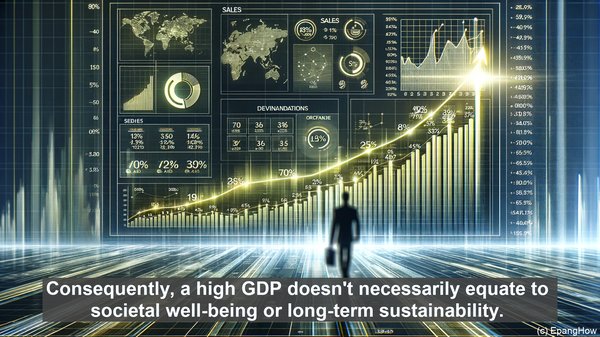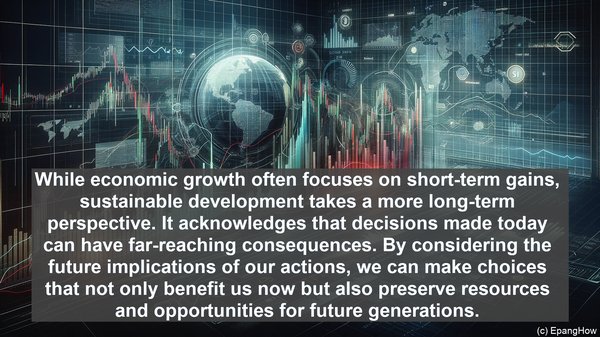Introduction: The World’s Dual Concerns
Hello everyone, and welcome to today’s article. As we navigate the complexities of the modern world, two terms often come up in discussions about our future: economic growth and sustainable development. While they may seem similar, they represent distinct approaches to progress. Today, we’ll explore the nuances of these concepts, their implications, and why they both matter.
Defining Economic Growth
Economic growth primarily focuses on increasing a nation’s production and consumption of goods and services. It’s often measured by indicators like Gross Domestic Product (GDP). This metric, while valuable, has its limitations. It doesn’t account for factors such as income distribution, resource depletion, or environmental impact. Consequently, a high GDP doesn’t necessarily equate to societal well-being or long-term sustainability.
The Multi-faceted Nature of Sustainable Development
Sustainable development, on the other hand, takes a holistic view. It recognizes that economic progress must be balanced with environmental protection and social equity. The famous ‘triple bottom line’ captures this idea, emphasizing the need for economic, environmental, and social considerations. Sustainable development aims to meet present needs without compromising the ability of future generations to meet theirs.

Environmental Impact: A Key Distinction
One of the starkest contrasts between economic growth and sustainable development lies in their treatment of the environment. Economic growth, in its traditional form, often prioritizes resource extraction and pollution-intensive industries. While this may yield short-term gains, it can have severe long-term consequences. Sustainable development, on the other hand, advocates for ‘green’ practices, renewable resources, and minimizing ecological harm.

Social Equity: A Vital Component
Another critical aspect of sustainable development is social equity. Economic growth, if not accompanied by measures to reduce inequality, can lead to disparities in income, education, and healthcare. Sustainable development, however, emphasizes inclusivity and ensuring that the benefits of progress are shared by all segments of society. It recognizes that a truly prosperous society is one where no one is left behind.
The Long View: Balancing Immediate and Future Needs
While economic growth often focuses on short-term gains, sustainable development takes a more long-term perspective. It acknowledges that decisions made today can have far-reaching consequences. By considering the future implications of our actions, we can make choices that not only benefit us now but also preserve resources and opportunities for future generations.
